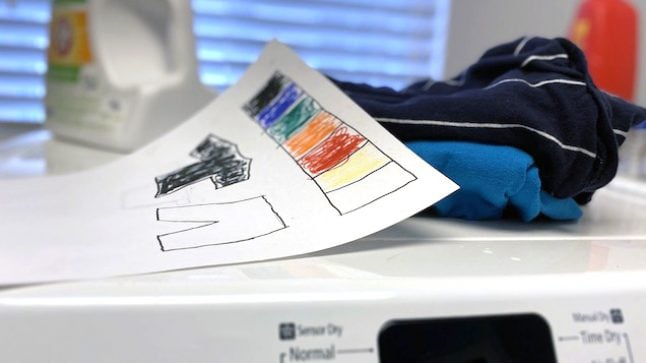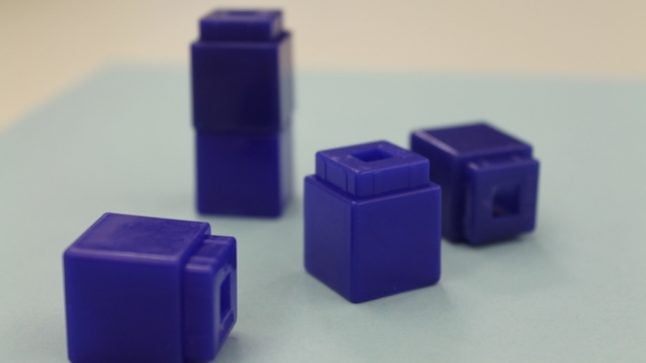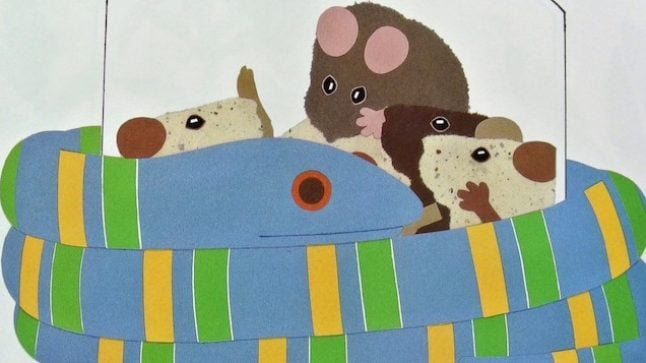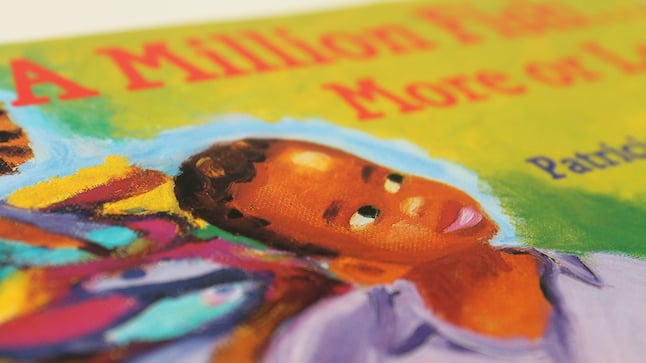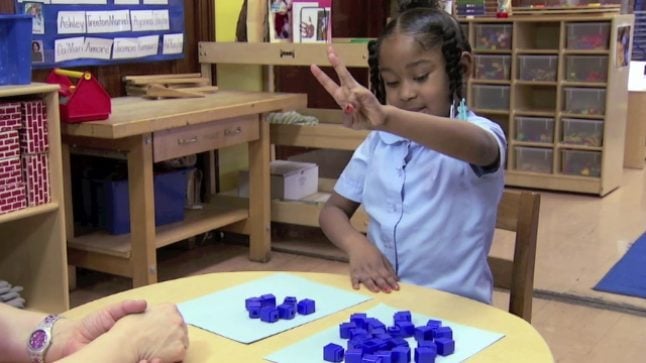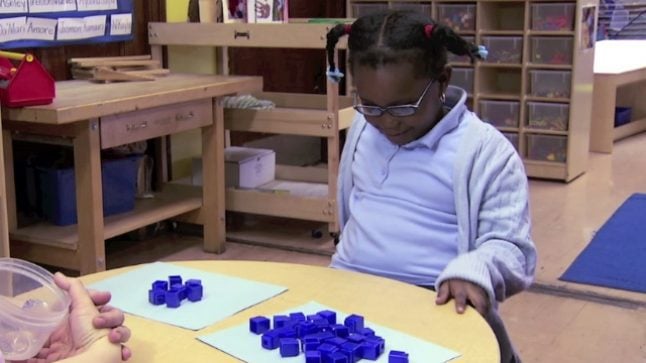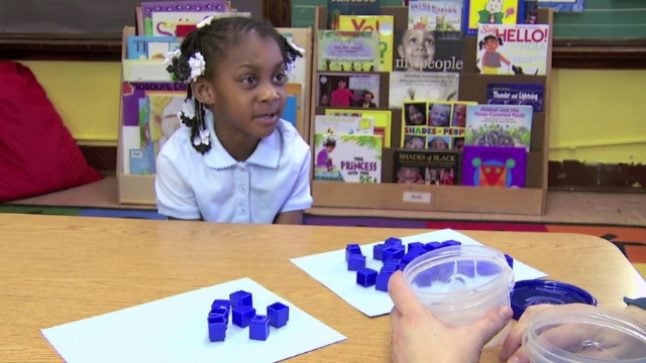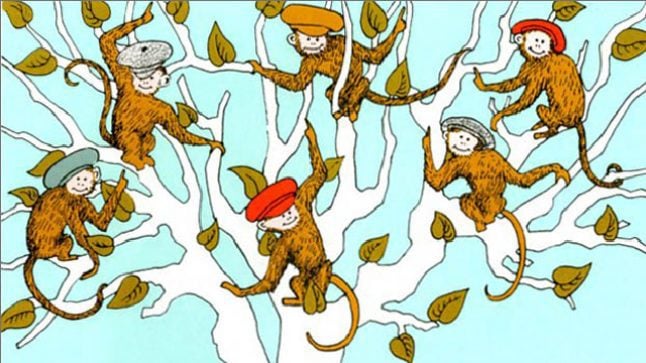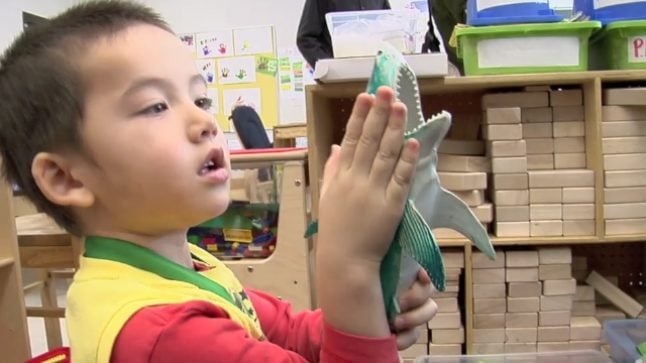Tagged as: Estimation
Tackling Estimation in Math, with a Definition
To discuss the term estimation, the definition of which can sometimes be lost in a discussion, is important especially in the early years. Estimation is the process of evaluating a quantity when the situation calls for a tentative or "rough" number. Estimation is not merely "guessing." It helps to define estimation and understand that an estimate, a reasonable one, depends on mathematical understandings of both measurement and numerosity.
Series: Ideas at Work
Let’s Wash that Math Right Into Laundry Day
April 25, 2020
Whether you have a machine at home or visit a laundromat, there is all kinds of math involved in doing laundry. And there are all kinds of ways that children of all ages can join in the thinking and doing.
- Topic: Sets
- Age/Grade Level: Pre-K, Kindergarten, 1st Grade, 2nd Grade, 3rd Grade
- Tags Estimation, Comparing, Attribute, Family Math, En Español
Series: Focus on the Child January 29, 2019
Many Ways to See How Many
Regardless of how high a preschooler can rote count, a child’s sense of what those numbers actually mean develops gradually. We call this understanding number sense, and it requires relating numbers to real quantities.
- Topic: Number Sense
- Age/Grade Level: Pre-K, Kindergarten
- Tags Estimation, Unifix Cubes, Subitizing, Gesture, Dot cards
Series: Ideas at Work February 14, 2018
Control Your Math Fate, Estimate!
Ellen Stoll Walsh's book Mouse Count can be used in the classroom to cover such broad-ranging topics as data analysis, number sense, and number and operations. Key concepts such as estimation can be explored and…
- Topic: Data Analysis
- Age/Grade Level: Pre-K, Kindergarten
- Tags Animals, Estimation, Ellen Stoll Walsh, Mouse Count
Series: Book Ideas February 15, 2017
Explore Estimation While Enjoying a Whopper of a Tale!
This book is a delightful way to start a discussion about estimation in the early grades. Is it reasonable that Hugh Thomas caught a million fish?
- Topic: Number Sense
- Age/Grade Level: Pre-K, Kindergarten, 1st Grade
- Tags Animals, Estimation, Subitizing, Books, Numerosity, A Million Fish...More or Less, Patricia McKissack
Series: Focus on the Child June 11, 2015
Estimating Quantity with Child 3
A student approximates the number of cubes in collections of increasing quantity.
- Topic: Number Sense
- Age/Grade Level: Pre-K, Kindergarten
- Tags Estimation, Unifix Cubes, Comparing, Child 3
Series: Focus on the Child June 11, 2015
Estimating Quantity with Child 8
A child estimates the number of cubes in a collection.
- Topic: Number Operations
- Age/Grade Level: Pre-K, Kindergarten
- Tags Child 8, Comparing, Unifix Cubes, Estimation
Series: Focus on the Child April 3, 2014
Estimating Quantity with Child 9
A child estimates the number of cubes in a collection.
- Topic: Number Sense
- Age/Grade Level: Pre-K, Kindergarten
- Tags Estimation, Unifix Cubes, Comparing, Child 9
Series: Book Ideas March 15, 2013
Counting on Caps for Sale
The award winning classic children’s story Caps for Sale by Esphyr Slobodkina is one that preschoolers love to act out. Using discussion to make some connections to the children’s own lives, and to math, can…
- Topic: Counting
- Age/Grade Level: Pre-K
- Tags Animals, Estimation, Books, Caps for Sale, Esphyr Slobodkina
Series: Focus on the Lesson February 16, 2013
Just Right for Me
In this video, students compare the size of their hands to objects around the classroom to find ones that are "just right."
- Topic: Measurement
- Age/Grade Level: Pre-K, Kindergarten
- Tags Big and Small, Estimation, Comparing, Correction
Do the math.
Free videos.
Free newsletter packed with ideas.
Free professional learning modules.
